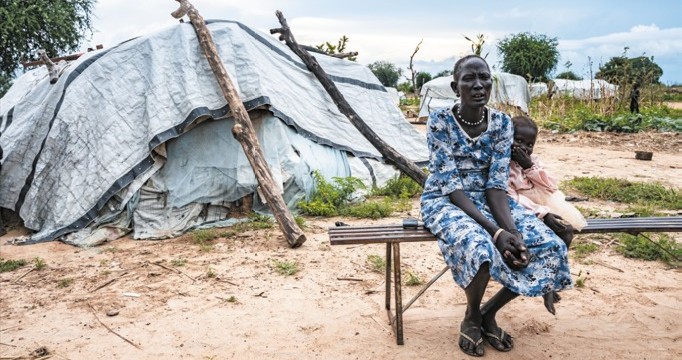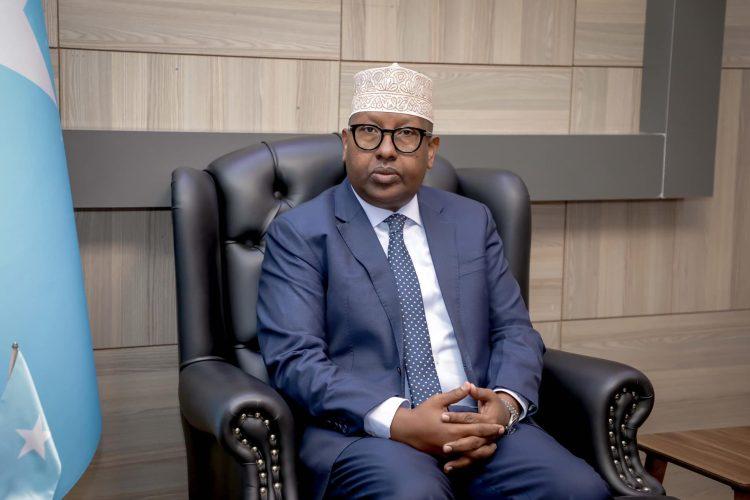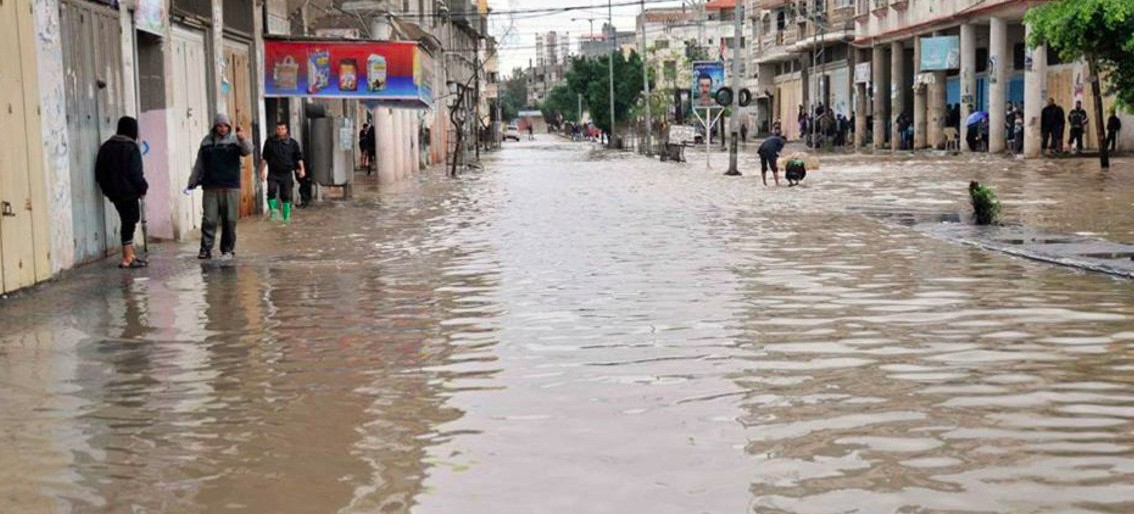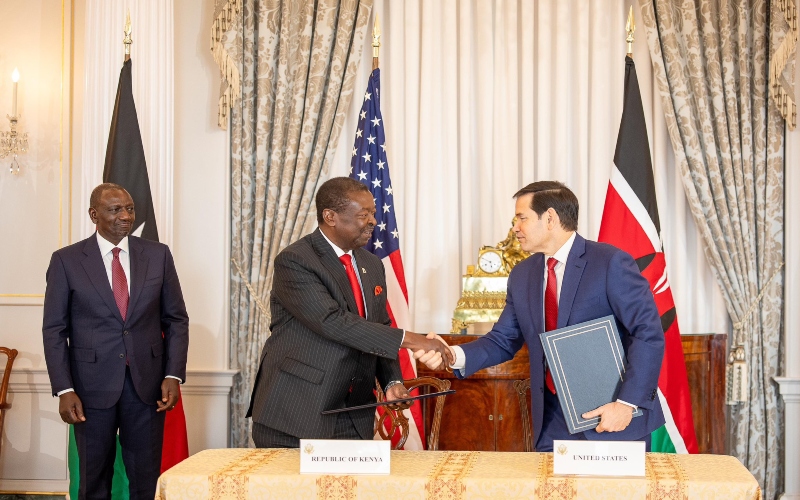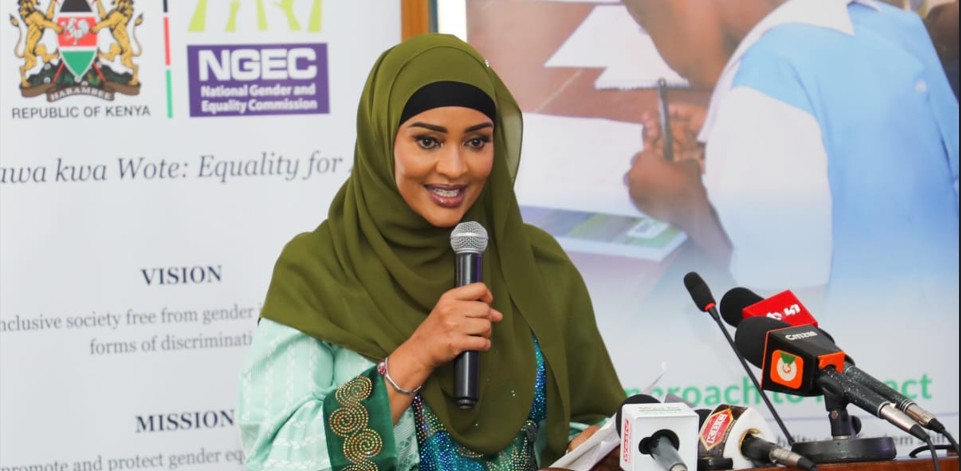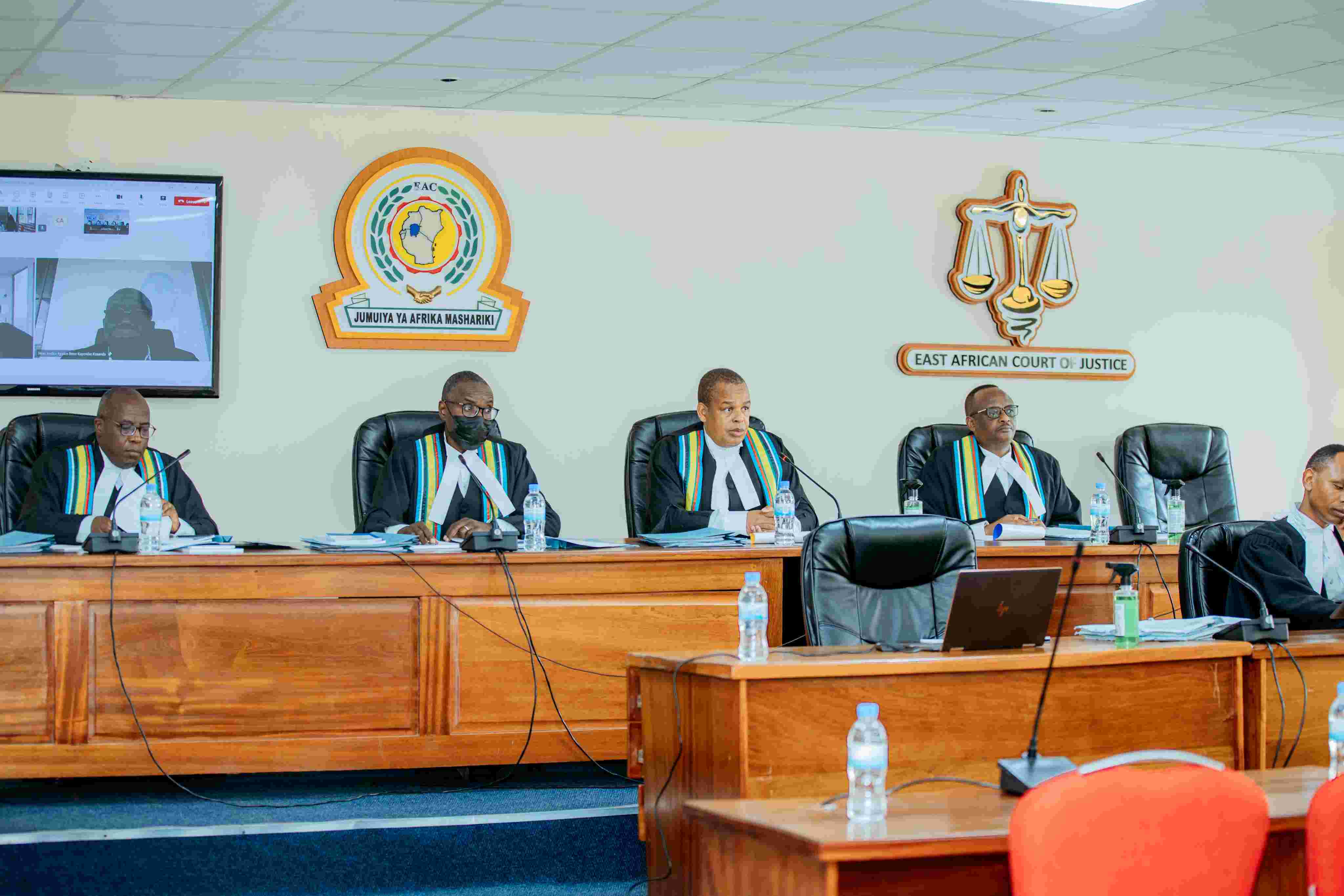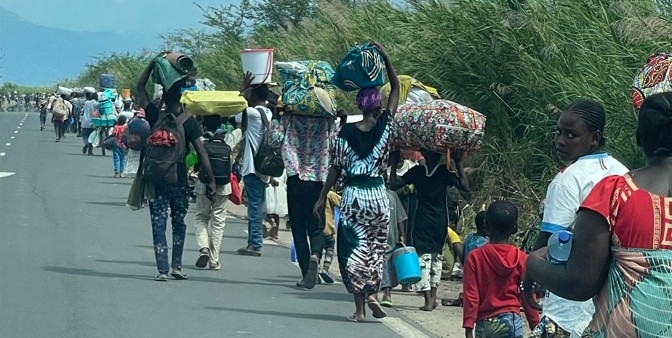Kamukunji’s Kinyago Kanuku hosts groundbreaking breast and cervical cancer screening
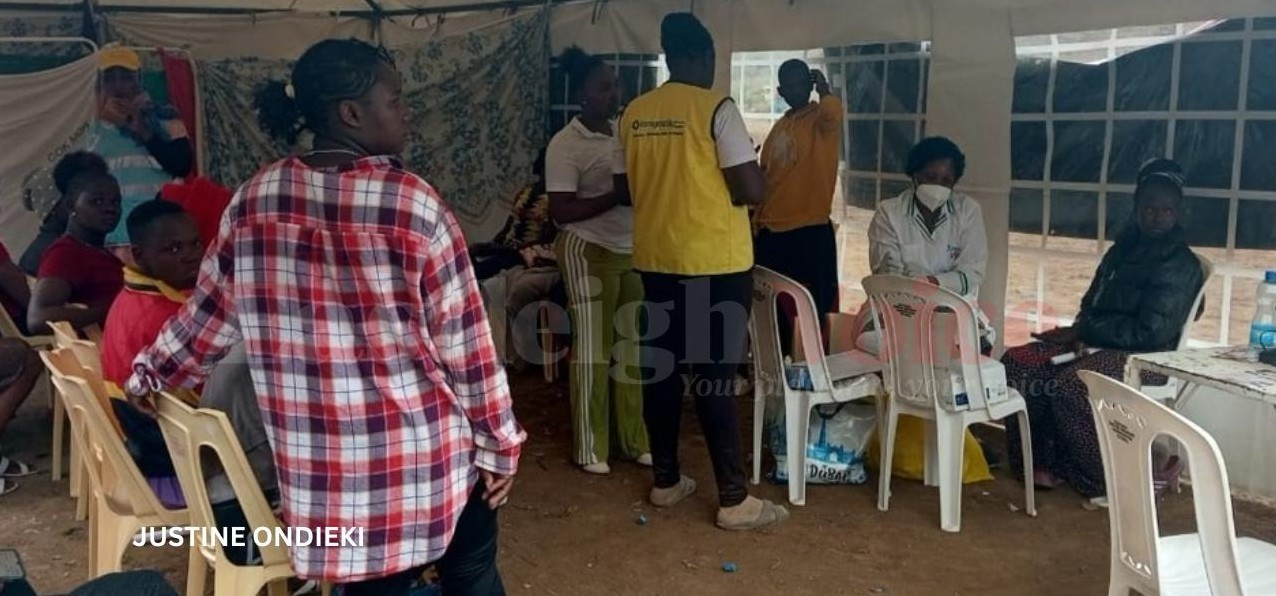
The initiative marks a key milestone in efforts to improve healthcare access and cancer prevention in informal settlements, where barriers have historically limited early detection and treatment.
Over 100 women and girls gathered at Kinyago Kanuku in Kamukunji on Thursday for a free breast and cervical cancer screening to mark World Breast Cancer Day.
The initiative marks a key milestone in efforts to improve healthcare access and cancer prevention in informal settlements, where barriers have historically limited early detection and treatment.
More To Read
- Uwezo Fund disburses Sh2.2 million to 14 community groups in Kamukunji
- Kenya reports progress in HPV vaccination, still short of WHO target
- 10 runners race up Mt Kenya in 10 hours to honour women lost to cervical cancer
- Cervical cancer screening in Kenya alarmingly low with only 1 in 4 women tested
- Hormonal contraceptives linked to higher breast cancer risk, study finds
- How one doctor’s breast cancer battle became a message of hope for Kenyan women
The outreach took place in the densely populated Kinyago Kanuku settlement, where many residents face socio-economic challenges, including limited access to affordable healthcare.
The initiative was jointly organised by local health partners, the county government, and community leaders, who recognised the urgent need to tackle obstacles such as cost, accessibility, and lack of awareness that prevent women from seeking lifesaving screenings.
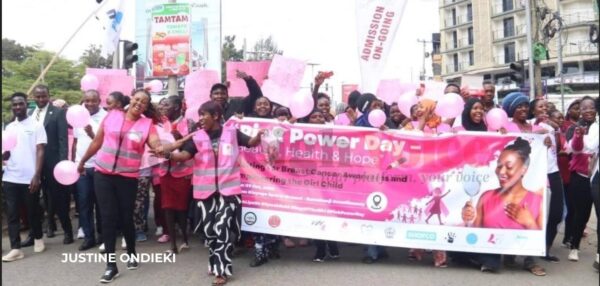 Men and women take part in a walk to mark World Breast Cancer Day in Kamukunji Constituency. (Photo: Justine Ondieki)
Men and women take part in a walk to mark World Breast Cancer Day in Kamukunji Constituency. (Photo: Justine Ondieki)
This dual screening programme, covering both breast and cervical cancers, attracted women of all ages—many receiving these vital health checks for the first time.
For residents like Acham Angela, the screening brought immense relief. Hailing from the Karamajong community, where healthcare facilities are scarce, she expressed deep gratitude for the opportunity.
"This screening has brought me great relief. It is the first time I have had the chance to be checked for breast and cervical cancer," Angela said with a smile. "I found out that I'm okay, and that makes me very happy. I would encourage other women not to be afraid of screening because it helps you understand your health and prevent many diseases."
Underserved communities
Her experience underscores the importance of bringing health services directly to underserved communities.
Faith Wilson, a community health promoter from the nearby Biafra area, highlighted the role of awareness in encouraging participation. She noted that turnout was encouraging, with many women overcoming initial fears and misconceptions.
"We focused on screening women aged 18 to 35, but there are still many older women who have not yet come. We are working to encourage them because cervical and breast cancer can affect women of all ages," Wilson explained. "Some women were hesitant at first, worried about the process or their eligibility. We educate them that screening is free and open to everyone regardless of their status or health insurance."
Misconceptions
Wilson also addressed misconceptions that have limited access, including beliefs that "foreigners cannot access screening" or that "screening requires a National Health Insurance Fund (NHIF or SHA) card." Bringing services into the community, alongside trusted local figures, is helping to dispel these myths and boost acceptance.
"Many women don't usually visit hospitals due to fear or cost, but when services are brought into their own communities, they feel safe and are more willing to participate," she added.
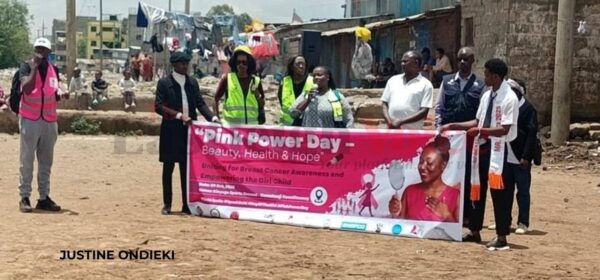 Stakeholders gather to commemorate World Breast Cancer Day during a community awareness event in Kamukunji. (Photo: Justine Ondieki)
Stakeholders gather to commemorate World Breast Cancer Day during a community awareness event in Kamukunji. (Photo: Justine Ondieki)
The initiative received strong support from local youth and leaders. Wilson Mwangi, a youth leader from Kamukunji Constituency's California Ward, described the screening as groundbreaking.
"This is the first time we've seen such a comprehensive health screening program in Kanukuu village," he remarked. "We truly appreciate the effort and hope similar initiatives can be rolled out in other parts of the constituency to ensure more people can access free medical services."
Cancer stigma
Aching Otieno, Executive Director of Being Africa—a research organisation specialising in non-communicable diseases—highlighted the broader challenges faced by the community, particularly the stigma around cancer.
"There is a significant stigma that prevents many individuals from seeking care or even acknowledging symptoms," Otieno said. "We have seen preventable deaths occur because people lack critical information about their health and the availability of screening services."
She emphasised that the outreach aimed to educate mothers and girls about early detection, crucial for breast and cervical cancers, which remain among the leading causes of cancer-related deaths in Kenya.
"Cervical cancer alone claims over 3,000 women's lives annually. That's why we prioritised Kinyago for this awareness and screening drive—to bring services closer to those who need them and to challenge the stigma surrounding these diseases," Otieno noted.
She also stressed that breast cancer is not only a woman's issue. Men often serve as caregivers and play a vital role in supporting loved ones through treatment, fostering community-wide support.
Screening and timely treatment
Otieno highlighted the importance of linking screening with timely treatment.
"For those diagnosed with precancerous conditions, early intervention can save lives. But this requires that screening services are not only available but accessible and affordable to all women," she said.
She urged the government to prioritise non-communicable diseases by expanding cancer screening across all health facility levels—from Level 1 community health units to Level 6 referral hospitals.
Otieno also raised concerns about SHA coverage, noting that many women exhaust their insurance mid-treatment, leaving them at risk of discontinuing critical care.
"In this day and age, cervical and breast cancer should no longer be fatal diseases. They are preventable and treatable when detected early, and it's crucial we do everything possible to ensure no one dies needlessly from them," she concluded.
Most commonly diagnosed cancer
Globally, breast cancer is the most commonly diagnosed cancer among women, with an estimated 2.3 million diagnoses and 670,000 deaths in 2022.
In Kenya, breast cancer accounts for around 6,000 new cases annually, primarily affecting women aged 35 to 45, with over 3,100 deaths recorded in 2020.
Cervical cancer continues to pose a serious threat, claiming around 3,200–3,600 Kenyan lives annually, roughly nine deaths per day. Worldwide, approximately 660,000 women were diagnosed in 2022, with 350,000 deaths, mostly in low- and middle-income countries.
In response, Kenya’s Ministry of Health has intensified HPV vaccination programmes, expanded screening services, and implemented national cancer guidelines, aiming to reduce cancer prevalence and mortality by 50 per cent by 2025.
These efforts reinforce that breast and cervical cancers are largely preventable and treatable when detected early, underscoring the importance of public health campaigns, vaccinations, and accessible screening services to save lives.
Top Stories Today
